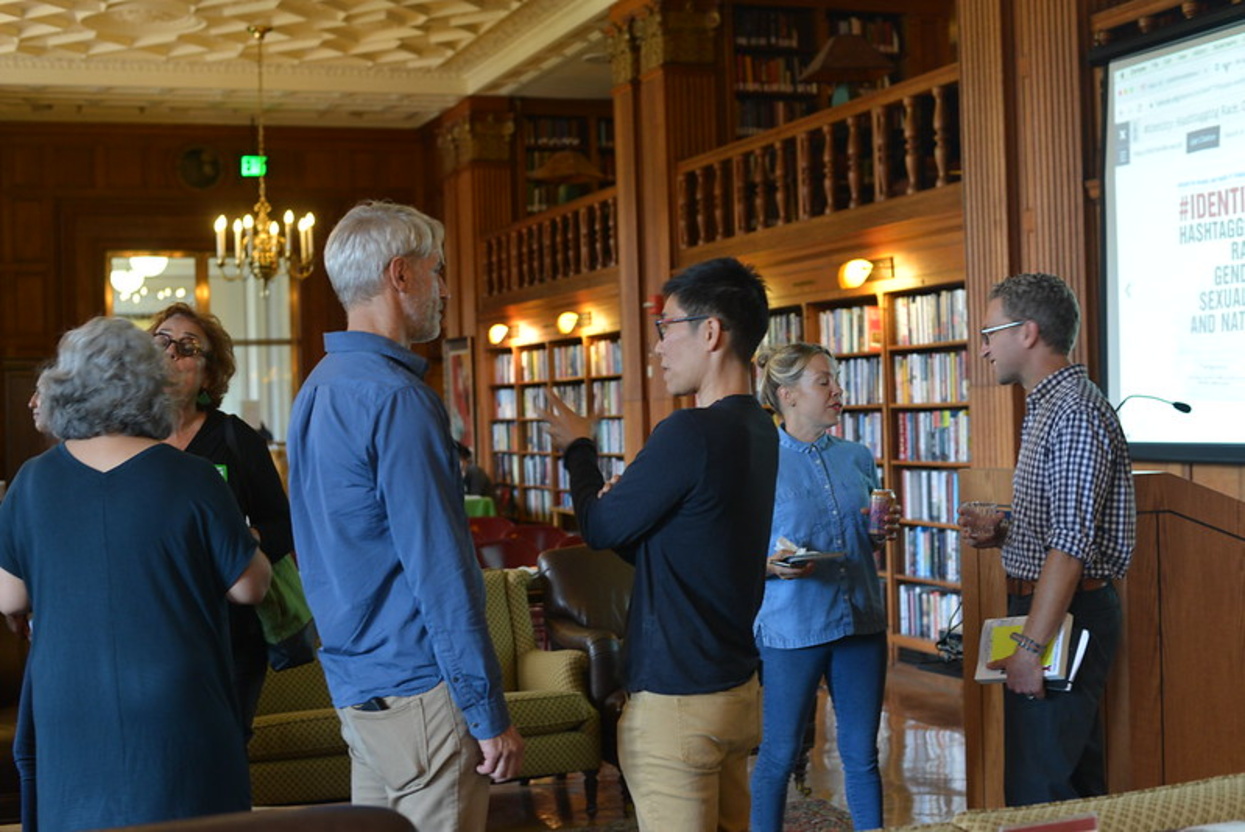#Identity Book Launch Revisited

The “#identity: Hashtagging Race, Gender, Sexuality, and Nation” book launch party took place at Morrison Library on September 18. Editors Abigail De Kosnik and Keith Feldman moderated the event, but were joined by a variety of contributors, students and guests.
Abigail and Keith illuminated that although #identity was the Color of New Media Working Group’s first publication, it had been meeting monthly for the past six years. Their meetings had been supported by BCNM and the Center for Race and Gender Equality.
From then on, the rest of the evening agenda was filled with people who had played large parts in seeing this book come into fruition.
The first guest speaker was Rachel Samberg, a representative from the UC Berkeley Library, who assisted with licensing this scholarship so that it would be open access and free to read online with the University of Michigan Press. Rachel delved into how it was imperative that the UC’s open access policy be expanded beyond journal articles and into long-form materials. The library helped subsidize the cost of publishing to address publisher concerns such as recouping revenue.
Keith then proceeded to Skype in two contributors to the book, José Ramón Lizárraga and Arturo Cortéz, who were telecalling from Boulder, Colorado. Their co-authored chapter grappled with pedagogy and learning, thinking about how queerness can serve as a pedagogical tool across digital realms. Their case study looked at a local Bay Area drag queen’s usage of Twitter to transmit her queerness not only to her fans, but also to her colleagues at her daytime profession.
Renee Pastel, a graduate student, also discussed her chapter in the book — tracing the official use of hashtags in television and understanding the socio-political potential. Renee looked at shows such as Jane the Virgin (#typed) and RuPaul’s Drag Race (#dragrace) to compare the effects of official versus fan-generated hashtags.
Julia Havard, a Ph.D. student at UC Berkeley, talked about her focus on the #WhyIStayed movement. She was interested in the historical lineage of black women’s anti-violence testimony and changing perceptions of survivors to shift blame to the perpetrator. During her time on the podium, Julia dubbed “survivor magic” as a collection of resources that survivors develop from and within the experience of trauma.
Nalya Rodriguez, a Ph.D. student at UC Irvine, looked toward researching the death of Sandra Bland — which she partnered with Sacramento State University professor Aaminah Norris to pen. For Nalya, #identity was her first publication after doing her first semester of research in Berkeley. She was concerned with Facebook users’ reactions to the incident, noting that users frequently brought up how Sandra had previous suicide attempts.
Drawing towards the end of the night, Abigail and Keith opened up the forum to Q&A. They touched on topics such as the process the group engaged in when writing the book, the varied approaches of the authors and how the book changed after the 2016 election.

